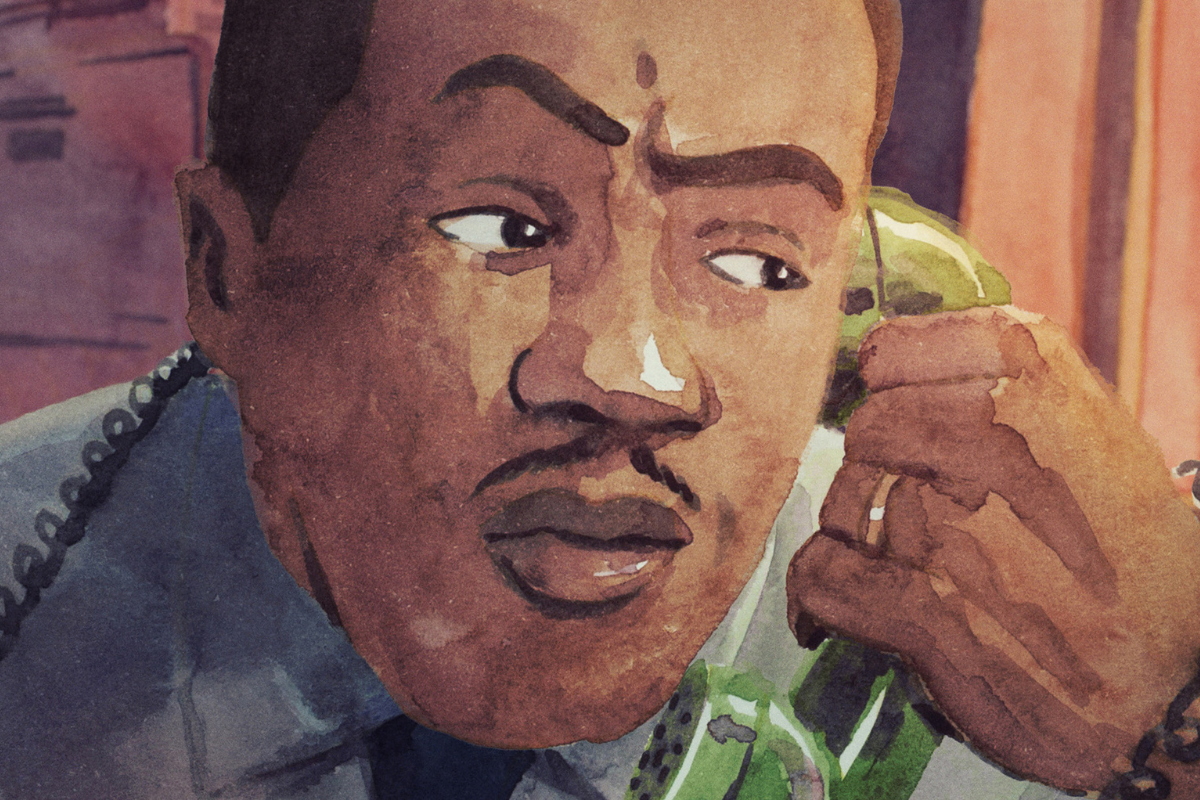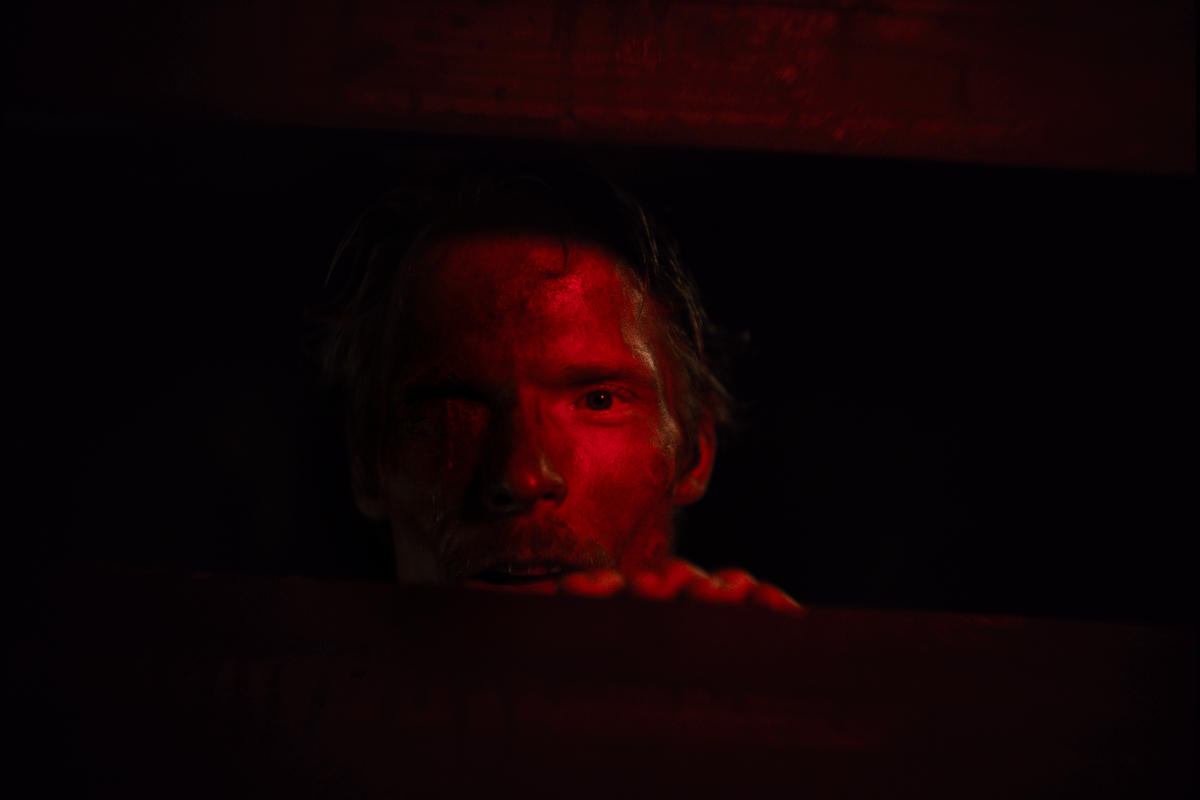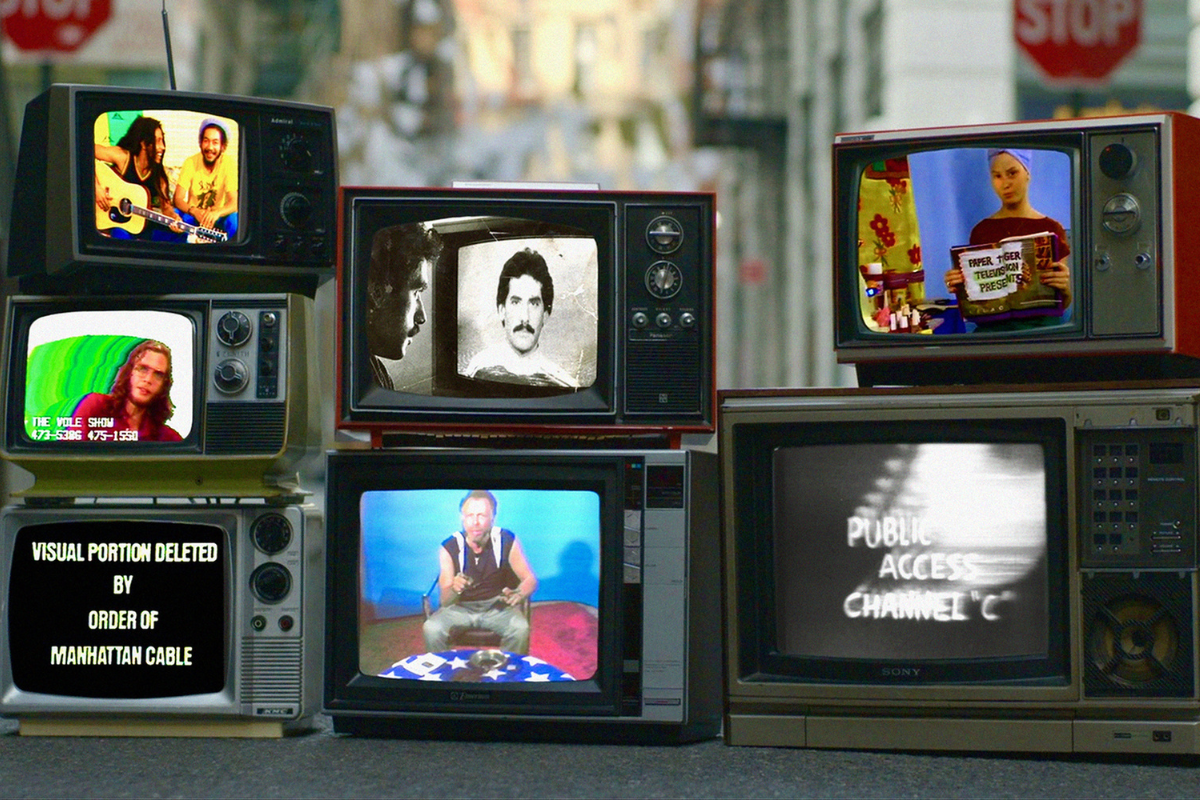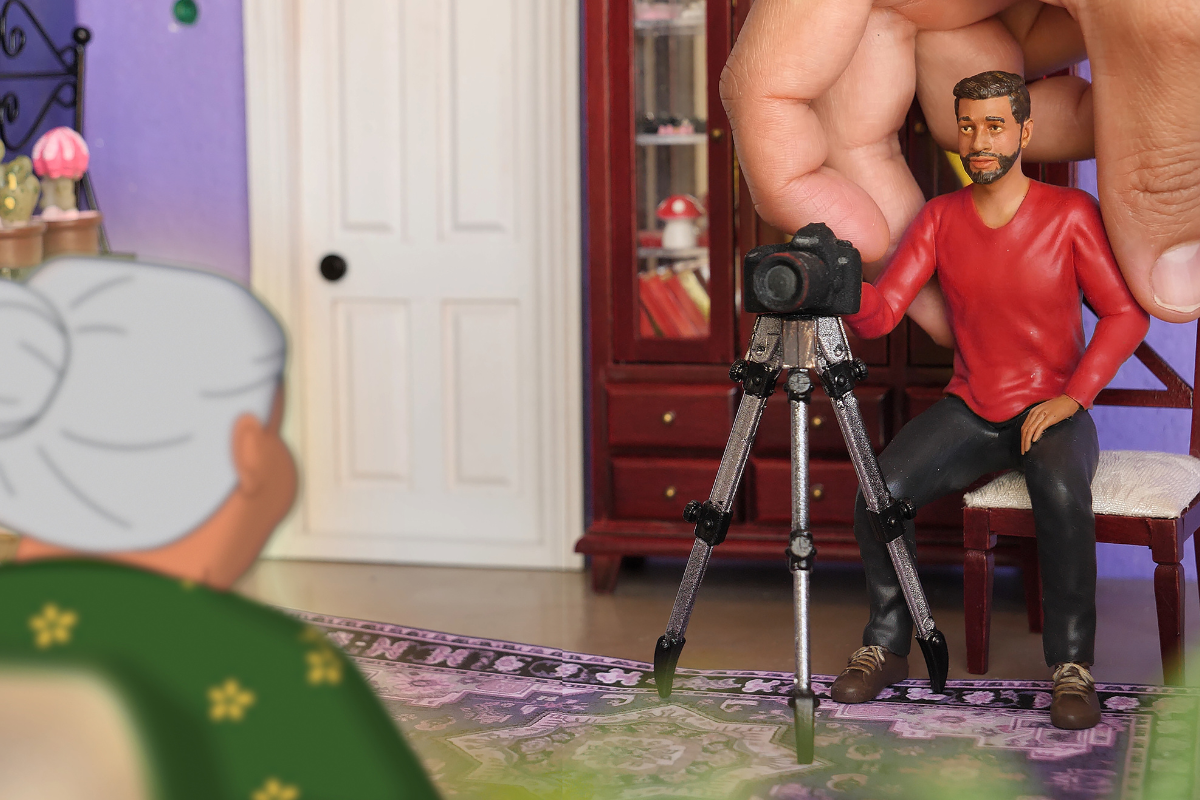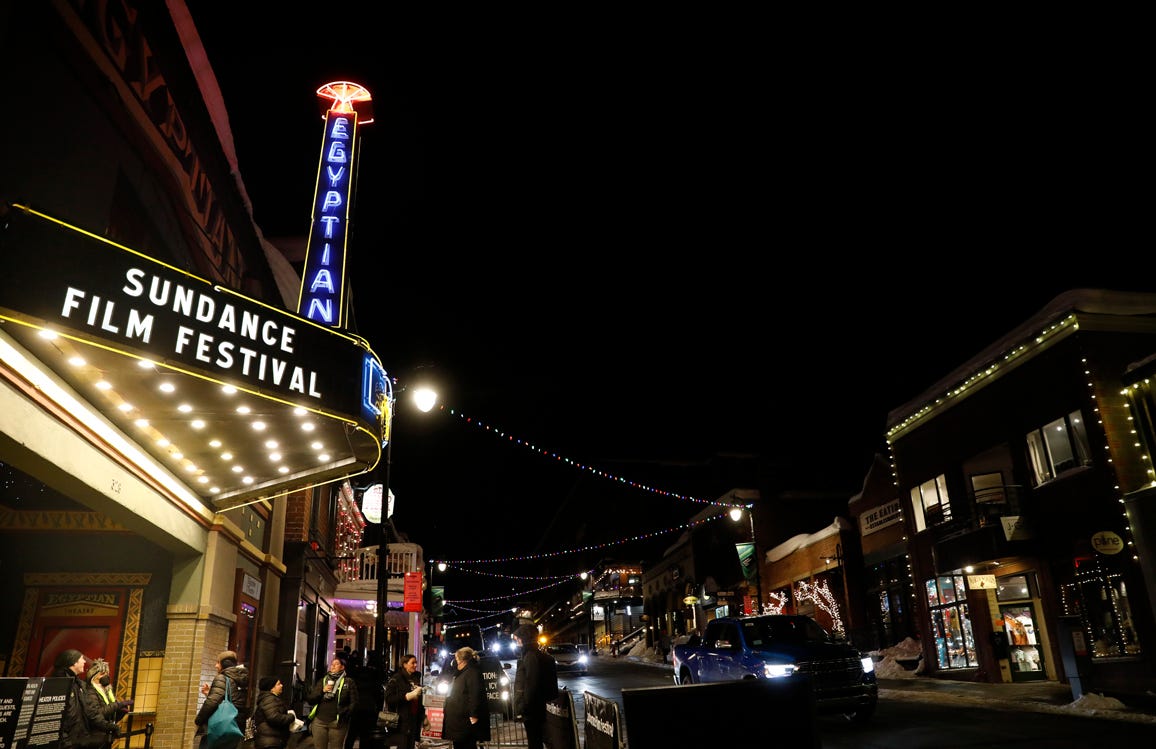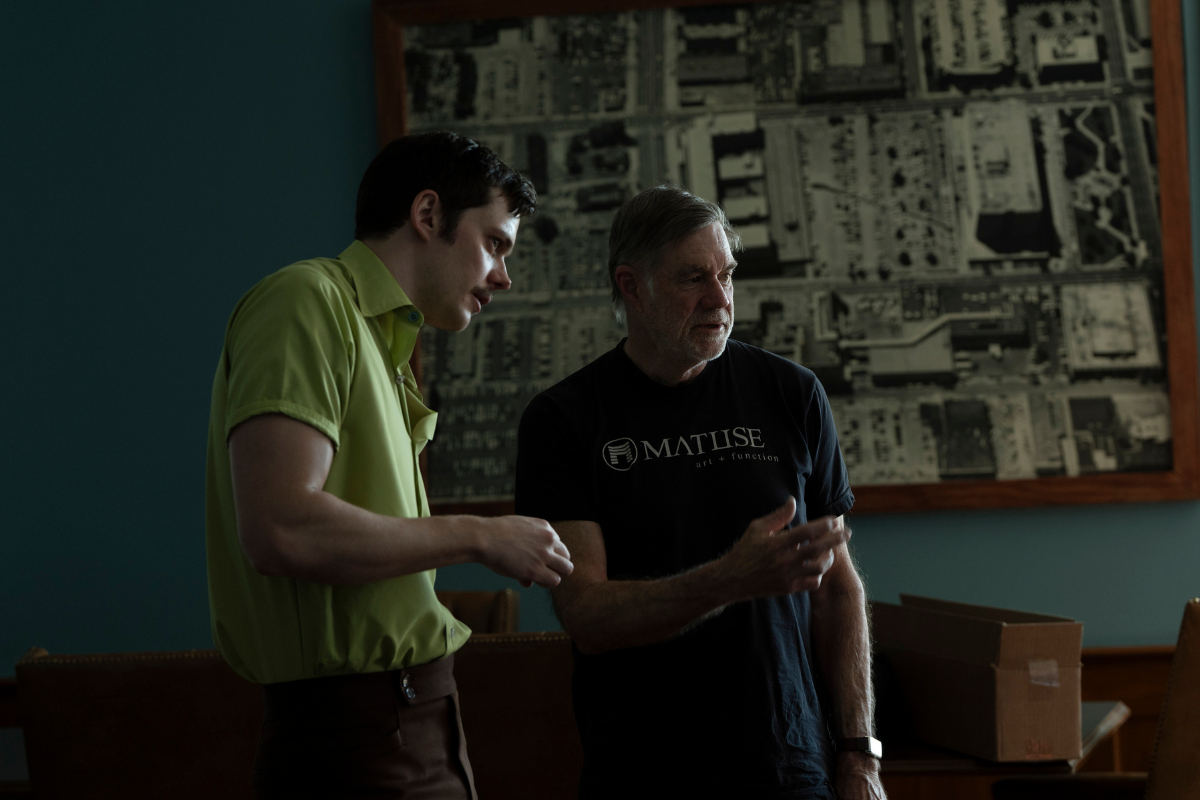Interview with PBS American Masters Documentary ‘Floyd Abrams: Speaking Freely’ Filmmaker Yael Melamede
Filmmaker Yael Melamede shares with Script how her architectural background has become a vital and necessary tool in how she builds stories and her creative team, and so much more!
Follow the 50-year career of preeminent First Amendment lawyer Floyd Abrams. See how his landmark cases—from the Pentagon Papers to Citizens United to Clearview AI—helped define free speech as it is known today. Join Dan Abrams, Ari Melber, Nina Totenberg and more as they explore how Abrams' career has shaped major changes in law, public discourse and civic action since the 1960s.
Filmmaker Yael Melamede dives head first into the career of First Amendment lawyer Floyd Abrams and his longstanding legacy in taking on cutting-edge work. Yael shares with Script how her architectural background has become a vital and necessary tool in how she builds stories and her creative team, she also shares how she approached her subject matter, her filmmaking journey and shares invaluable advice for first-time documentarians.
This interview has been edited for content and clarity.
Sadie Dean: How did the idea to do a Floyd Abrams documentary come to you? Was it presented to you through PBS or did you pitch it to them?
Yael Melamede: I have, I guess, even in fiction filmmaking, but in Docs, I've been very much of an independent filmmaker, and have gravitated towards, sadly, [laughs] projects that we end up doing a lot of the funding and selling of, and this one was no different. I wanted to do this film about free speech initially, and then Floyd Abrams, in particular and approached Floyd about whether he would be willing, and he said, 'Yes.'
I had worked with Alex Gibney’s company, Jigsaw Productions and Amblin Entertainment, Spielberg's company on this project called Why We Hate and through that process, did a lot of research into hate speech. And it started in late 2017. But through 2018, it was a time when things were just, it was kind of the beginning of I think of this super polarization that we find ourselves in, under the Trump administration and just a different time - not so different, but different from what had come before, not different to what is now. I just found the speech part of it really interesting and as COVID hit, it just seemed like all these things that we were dealing with having to do with misinformation and vaccinations and press and national security and technology issues, all of them could be talked about through speech. So, I thought it was really interesting.
And to cut a long story short, ended up making this film, which we often refer to as a biopic of the First Amendment through Floyd's story. And that's what attracted me to it. But in the process, I really fell in love with, I mean, I knew Floyd and I knew of him but really fell in love with him, the arc of his career as a way of talking about what we as Americans have seen in the last 50 years in terms of free speech, it's development, it's kind of coercion, it's weaponization, all of those things. So that's how we got there.
And then we started making the film really without an outlet. It was towards the end of COVID that I approached American Masters, and they thought Floyd was a really good fit for Thought Leaders. So that's how it came about.
Sadie: How did you approach framing Floyd's story hand in hand with what he's done with the First Amendment and his legacy behind it? I enjoyed that scene of him basically throwing away all of his work that he's done, as he prepares to go to a different office - it just felt thematically perfect, at least for me as a viewer.
Yael: It was funny, we had a screening in New York…with a whole bunch of journalists and a few historians, and so many of them came up to me afterward, ‘How could you let him throw away all that stuff?’ [laughs] And it was funny, it kind of hadn't occurred to me until they were so you know, apoplectic about it as researchers, ‘How could you do that?’.
I thought that because he had done it for so long, and because he was in this very fortunate position, and I love how he clearly is one of those people who has a very formed ego, but is also so humble at the same time, he's somebody who just truly loves what he does. And he was fortunate enough to be very lucky early on. So, he was at the forefront of this work. There were a few people who we talked to who talked about Floyd's work as cutting-edge. And I love that this guy who looks not very cutting edge was really doing cutting edge work. So those kinds of not contradictions, but different facets of him, I love - here he is doing cutting edge work and doesn't look that way. And he's doing really controversial work. And he doesn't seem to be the type.
One of his kids told me the story about how he'd been in front of a judge upstate, and somebody came up to him afterward and said, ‘It's amazing how you dress down to be so part of this environment.’ And of course, they laughed, they were like, ‘That's how he dresses, he did not dress down for court.’ [laughs] I just loved his character.
Finding Your Roots to Write Your Story
And I do think of him as such a model American when I think of somebody I admire and I love admiring someone who I disagree with on things. And I really wanted other people to have that experience of really coming to like someone who they might very strongly disagree with. I thought that was important and important for this moment that we're in that is so polarized. He has a way of talking about all kinds of things that make people very opinionated... He's so good at presenting two sides of an argument, even the things that he disagrees with that I just felt he was an important person to listen to right now.
Sadie: Yeah, and I appreciate how you present that in this film. How do you keep your own prejudices, at bay when you're covering something like this?
Yael: Yeah, it's a good question. I came to filmmaking from architecture. And I think architecture and film are similar in many, many ways. But I think they're also similar in that they are by their nature collaborative. I mean, you as an architect, you design a building, but you don't build it. You don't generally nail the studs or put the sheetrock up, you don't install the lights. And I think so much of that is true in film, and they are these amazing works, where, if you're lucky, the whole is greater than the sum of the parts. And I think it's always a big experiment in terms of trying to get there and hoping that that's what the final product will be greater than everyone.
And so on this in terms of keeping my own prejudices, I think the beautiful part of having an editing team, and even in this case, a really wonderful writing partner, who's my producing partner, that really helps keep arguing about different cases, arguing about even the cases we agreed on trying to look at the other side, I think helped us be mindful of how we view things and how other people might view things, and how to present it in a way. Where I think our opinions come through, people may see them differently, and even think that we have different opinions from what we have. But I think Doc's are always opinionated. But we were trying in this one to be quite balanced and to have people confront their own biases or their own prejudgments in order to be more open-minded.
Sadie: How much time was spent in the research phase and going through archives? And while going through all of this research, did you ever come across something that greatly influenced or maybe changed the trajectory of the story?
Yael: Every project is so different. This one started during COVID. And so, we couldn't interview people very easily. So, we did a lot of pre-interviews on Zoom, which we often don't do on Docs, because we want people to be fresh, and we don't want them to be overly prepared. And we don't want things to feel at all stale - that tends to be kind of the way we think about it. But on this one, we didn't really have a choice. And we needed to do the research. And we knew we wanted a lot of other voices. So, we spoke to quite a number of people on Zoom early, which ended up being fantastic research for the film, and giving us a sense of some of the complexity that we were going to have to deal with on the cases and how people saw them and kind of their richness. So that was great.
And it actually made us much better prepared for the interviews. And I think it's something that I probably would take forward and not be so nervous about is to talk to people early. It's also a way of casting of knowing if somebody's going to be good or not, and not relying too much on what you can find online or in their resume. So that ended up being a really wonderful tool. And we even edited some of that material early on in our first teasers to try and sell the project. So, there was a lot of putting the project together for funding, and for ourselves, that was very helpful in the process. We thought we might be more focused on one or two issues. And it ended up being a very broad film in terms of the subjects that we covered. So all that research phase was very helpful.
Sadie: What drove you to become a documentarian and step away from architecture?
Yael: Well, I stepped away a long time ago. I was an architect, not for that long; I studied architecture and got a master's degree. But then, two or three years into it, I knew it wasn't what I wanted to do. And I'd gotten into architecture through a love of photography, weirdly. But from photography, I really wanted, I always said that, I wanted the shutter to be open much, much longer, so I applied to film school and architecture school and got into architecture school and went. And I'm actually really pleased that I did, because I think it's a great background for almost anything, and it allows you to think about structure and pacing, and all kinds of things in a great way that apply really well to film. I wish I'd had time to go to film school also, but I didn't, I ended up learning on the way.
But initially, the first decade of SALTY [Features], was all fiction films, not documentaries. I've done one doc before that, which was very successful, called My Architect, I was a co-producer on it, and it was a perfect match because I'd been an architect and I knew a lot about the architect who was being featured. And it was a film by the architect's son, it was about Louis Kahn and Nathaniel Kahn was directing it. And it ended up being nominated for an Oscar. And it was a great ride. But I was really attracted to more fiction-type work. And I worked with amazing directors. I worked with Paul Auster, the writer, and Wayne Wang and Paul Schrader, and did a Margaret Cho film.
And then by chance, I ended up doing this doc that won an Oscar called Inocente about a young homeless artist in San Diego. And I just loved the process. And through that, all of a sudden got into the Doc world. And I think the Doc world of the last decade was more like the fiction world that I'd come into in the late 90s, early aughts. There was this kind of experimentation and creativity that had gotten a little bit lost in the indie film world that I loved in the Doc space. So that's what got me into docs.
Writing a Documentary Film With No Rules
And then the kind of the collaborative nature and the smaller production footprint, I just love, you can be more nimble. You can correct things - on a fiction film, if you didn't get it right, it's really hard to go back in and recreate. Whereas in Docs, you can just keep going and going. And that has its own problems. But I kind of loved the intimacy and opportunities for collaboration, experimentation, and continued exploration in Docs that was possible.
Sadie: Yeah, that's the beautiful thing about documentaries. You can definitely keep your shutter open for very long on documentaries. And with this film and subject, you certainly could have kept going, but obviously, you can’t.
Yael: I'm working on another film now, which is about my mother who happens to be a really important architect in Israel. And I've been working on that film for a while and she's super wise and very impressive. And she often quotes her father who was an architect who would say, ‘Everyone thinks it's so hard to start a project but it's almost as hard to know when to stop.’ And I think that's really true. It’s true for buildings, but also true for films; you have a budget and the budget and your schedule are really important guides. And I think limitations within reason are very healthy. Otherwise, you would just keep going.
And I think for me, I'm making films that I hope will reach audiences and ideally, really broad audiences. So, I'm not interested in the pursuit of perfection, or some art form, I'm really hoping to make something that will relate to people's experience of the world now. And so, to keep going doesn't make sense from that perspective. And to keep going on kind of a money level, I feel like it's irresponsible. So, I take those things as helpful guides for where one wants to go. And you know, sometimes, of course, one runs over budget, because one wants to continue a little bit, but I feel like it's those things that are really helpful.
And I think an architecture background is also helpful in that having a sense of what the whole is going to be even if you don't know all the pieces of it. But to kind of imagine what the whole thing needs to feel and look like. And then to work towards that goal. Which can sometimes be quite abstract, but kind of knowing that you're heading there and knowing that you have to make decisions. I definitely feel like in general, making a decision, even if it's the wrong decision is better than making no decision. So, they're kind of things that I've learned along the way of forcing decision-making, forcing schedules that I think are helpful to me in the creative process.
Sadie: Any advice for first-time documentary filmmakers?
Yael: It's such a complicated time to be making films in general. I think collaboration and community, to me, are the key to navigating where we are right now. I mean, I do think there's, especially when people work on their first films, first films are so different, because you don't yet have a community and you don't yet have entirely the people you know you want to collaborate with. And so those can often be really different. And you might be working on those on your own forever and ever, in this very particular way that can lead to such beautiful work. But I think once one starts to work in the industry, I think that the great benefit of this work is the opportunity to collaborate, to learn from others, to share one's work with other people, to make sure we're not working in a vacuum. I do that more and more now sharing cuts of film as I'm going along to get people's feedback, even watching a film that I'm working on with other people, just seeing it with them and imagining it through their eyes, I find so helpful. So, I think sometimes we tend to cloister a little bit too much as filmmakers because we get so obsessed with what we're doing. And for me, sharing, getting advice, building community, learning from others, have been not only helpful creatively, but also really exciting and fun. So that would be my advice.
Floyd Abrams: Speaking Freely premiered Friday, September 22 at 9 p.m. on PBS (check local listings), pbs.org/americanmasters and the PBS App.


